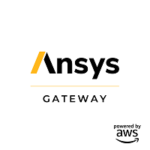The latest generation of graphics processing units (GPUs) from NVIDIA, based on their Ada Lovelace architecture, is optimized for high performance computing (HPC) workloads. The NVIDIA RTX™ 6000 Ada Generation, available from PNY, is designed….
PNY Now Offers NVIDIA RTX 6000 Ada Generation for High Performance Computing (HPC) Workloads
Manufacturing Repatriation: How HPC-Class Technologies from Microsoft Azure and AMD Support Manufacturers’ Reshoring Strategies

Geopolitical change is having tectonic impact on the global manufacturing industry. In the U.S., western Europe and other industrialized countries, there is growing emphasis on “manufacturing repatriation,” or reshoring of factory production….
Azure, AMD and the Power of Cloud-based HPC for Sustainability R&D Projects

Sustainability – both in the way it operates and in its support for the development of sustainable technologies and products – is a theme that permeates the Microsoft Azure public cloud platform and its end-user community. Azure, in combination with advanced and ultra-efficient CPUs from AMD….
Enabling Innovation for CFD Simulations, Thanks to Ansys and AWS
Reduce Costs while Accelerating Data-intensive HPC Workloads

Access virtually unlimited infrastructure with HPC optimized instances and quick interconnect speeds to run more complex (FEA) simulations faster. Reduce product development costs, improve product quality, and shorten time-to-market.
Open Source or Enterprise-grade Containers? How SingularityPRO Adds Value for Mission-critical HPC Workloads

Sylabs developed SingularityPRO and Singularity Enterprise to deliver an array of important features and capabilities, along with enterprise-grade support, for organizations that need more stability, security, and support. Organizations running AI, data science, and compute-driven analytics applications often have deeper needs for ensuring optimal performance from and security of mission-critical workloads running in containers.
How You Can Use Artificial Intelligence in the Financial Services Industry

In financial services, it is important to gain any competitive advantage. Your competition has access to most of the same data you do, as historical data is available to everyone in your industry. Your advantage comes with the ability to exploit that data better, faster, and more accurately than your competitors. With a rapidly fluctuating market, the ability to process data faster gives you the opportunity to respond quicker than ever before. This is where AI-first intelligence can give you the leg
up.
Catalyzing the Advancements in Genomics to Lower Barriers to Sustainable Innovation
In the 21st Century, if Big Data is used effectively in the health sector only, it can save 300 billion dollars per annum, as per the McKinsey Global Institute survey. Though the Genomic science is experiencing big data overload, its benefit to humanity of deciphering such big biological data sets using NGS technology makes it the ultimate use case in the coming era.
Overcoming Challenges to Deep Learning Infrastructure

With use cases like computer vision, natural language processing, predictive modeling, and much more, deep learning (DL) provides the kinds of far-reaching applications that change the way technology can impact human existence. The possibilities are limitless, and we’ve just scratched the surface of its potential. There are three significant obstacles for you to be aware of when designing a deep learning infrastructure: scalability, customizing for each workload, and optimizing workload performance.
Lenovo at SC22: Neptune™ Liquid Cooling Technology, HPC Servers Powered by New AMD, Intel and NVIDIA Chips, TruScale HPC-as-a-Service

[SPONSORED CONTENT] Lenovo’s decade-long stream of advancements in liquid cooling technology for its HPC-class servers will be a focus of activity for the company at the SC22 conference (booth 1204) from Nov. 14-17 in Dallas. The company also will be demonstrating new server platforms powered by the latest AMD, Intel and NVIDIA processors, along with the company’s TruScale HPC-as-a-Service capabilities and other advanced computing developments.





